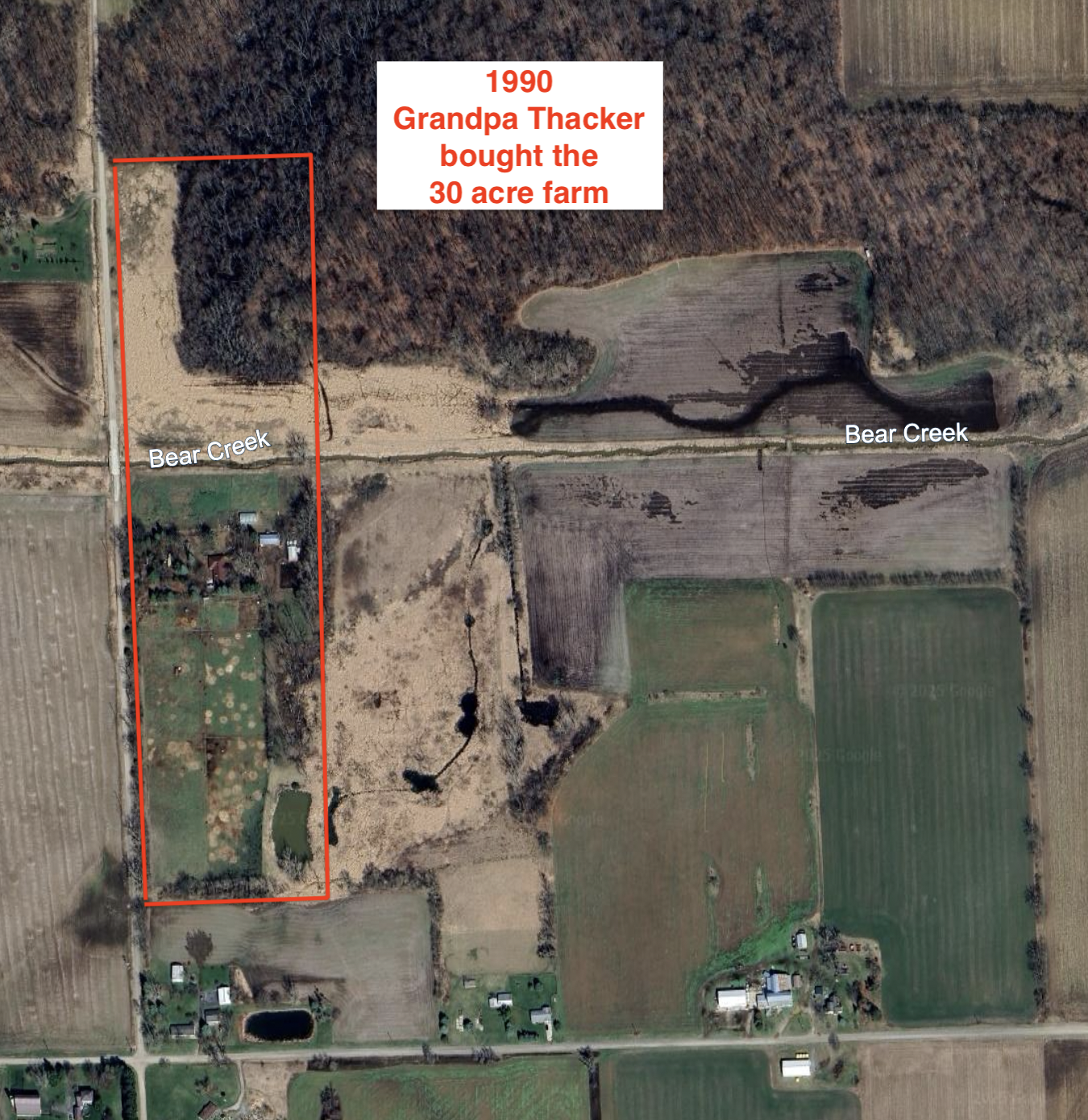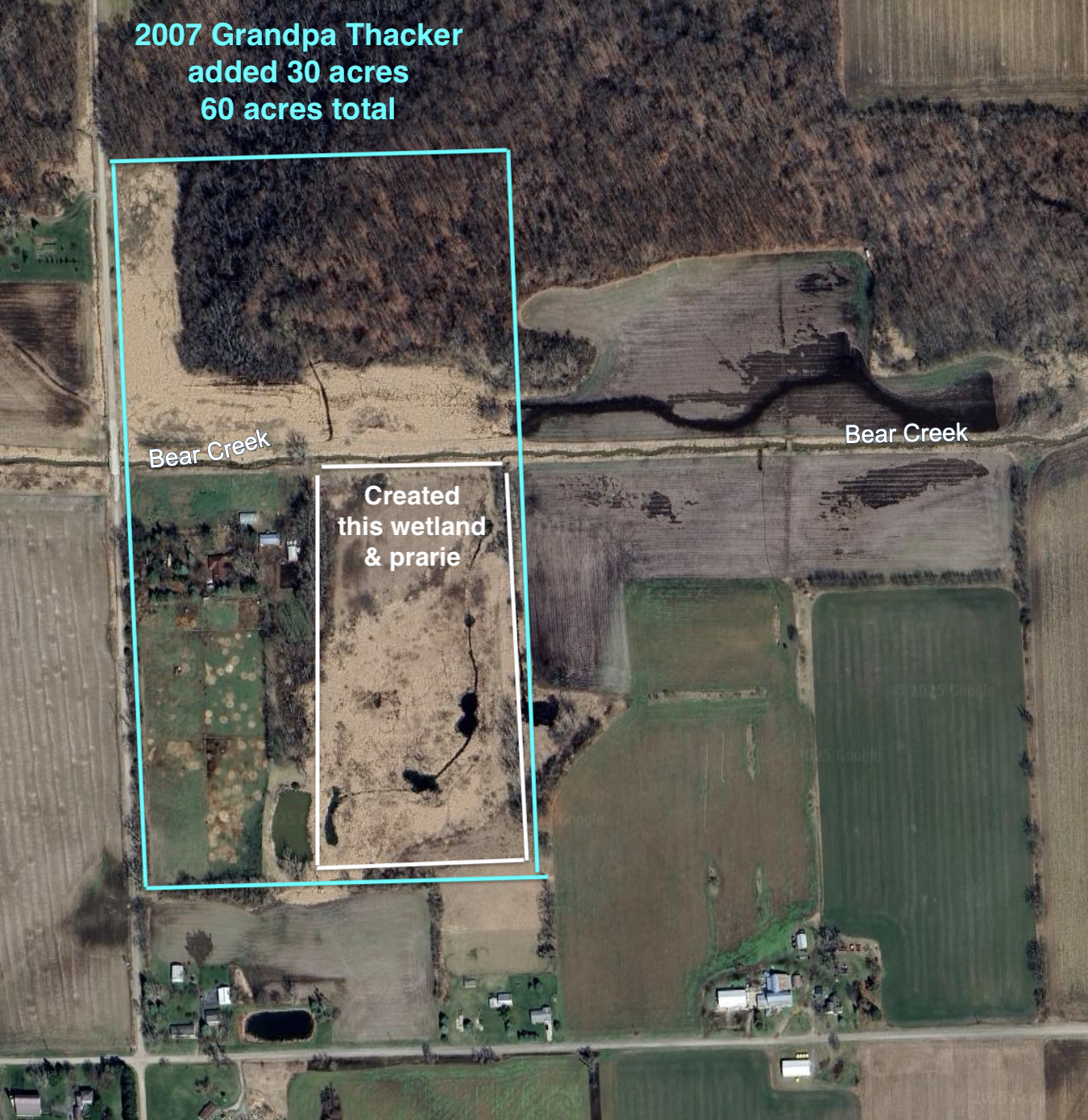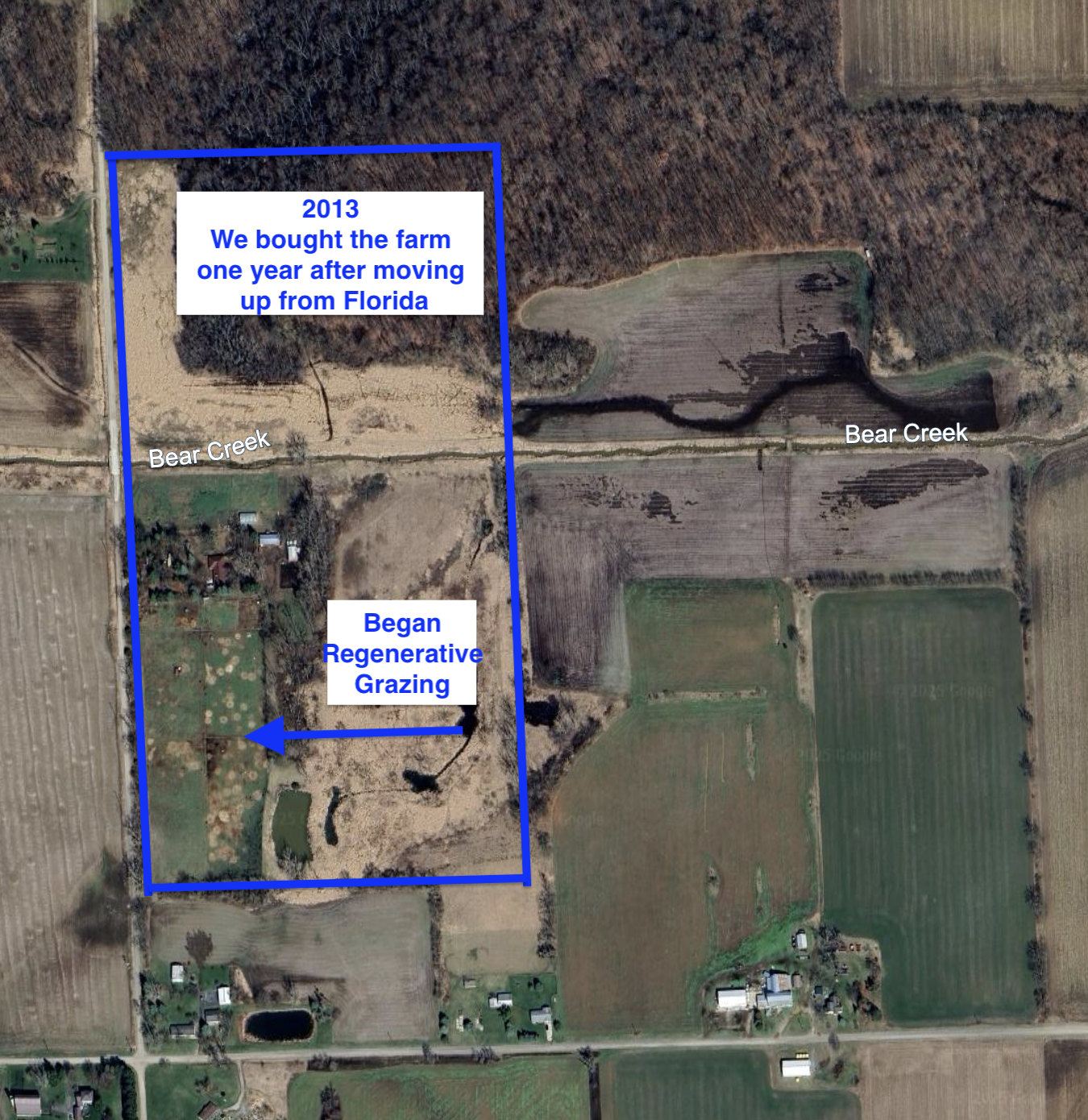My grandfather moved to this quiet corner of Southeast Michigan in 1990 after a lifetime of
farming and running a print shop. The 30 acre homestead was the perfect
place for me to visit and help with the garden and livestock. As a kid from the Florida suburbs,
this little slice of temperate paradise was spellbinding. The magic only intensified in 1999 when
Grandpa Thacker dug a fish pond and discovered the bones of a Mastodon buried in the peat.
In 2007, he purchased an additional 30 acres which was put into a conservation easement. One
part became upland prairie and the other part was turned into a wetland that filters water as it
flows from adjacent farms into Bear Creek and ultimately River Raisin. Grandpa Thacker was
always independent and reclusive but needed some help farming after his stroke so I moved up
in 2012 and started learning as I transitioned to Regenerative agriculture.
The 25 acres of Conventional row-crops were replaced with 10 acres of pasture and 15 acres of
clover pollinator habitat. I was delighted to learn that our woods was actually a maple
sugarbush so I began making syrup. We built a hoophouse and expanded garden areas to
rotate cover crops. We have been rotationally-grazing cattle and feeding hay to build organic
matter in the soil and using heritage hogs to work it up. Free-range chickes clean up after
everybody while making fresh eggs and pastured poultry.
The quality of our products is unmatched. The grass-fed beef is marbled and flavorful. The
treatment-free beekeeping produces the most amazing honey. Our free-range eggs are the
best around. The pastured pork is completely different from what most people expect. Our
traditional open-fire maple syrup has a complex flavor that is lacking in commercial syrup. The
local, seasonal produce is grown without any chemicals. We also offer products from local
partners like artisan cheese and ice cream, Michigan – grown Organic black beans, and Organic
flours and grains. Please contact us for product pricing and availability.
We’ve come a long way since relocating from Florida in 2012 but there is still a lot to
accomplish. We plan to build the capacity for on-farm processing so we can give the animals a
humane life from start to finish. We hope to transition towards sources of renewable energy.
We are working on value-added meat products like jerky, smoked pork and sausages as well as
dry salami and other cured meats. The ultimate vision is to operate a food truck with our
products as well as products from partner farms. Please become a supporter and join us on our
journey to bring fresh, local food directly to the community!



